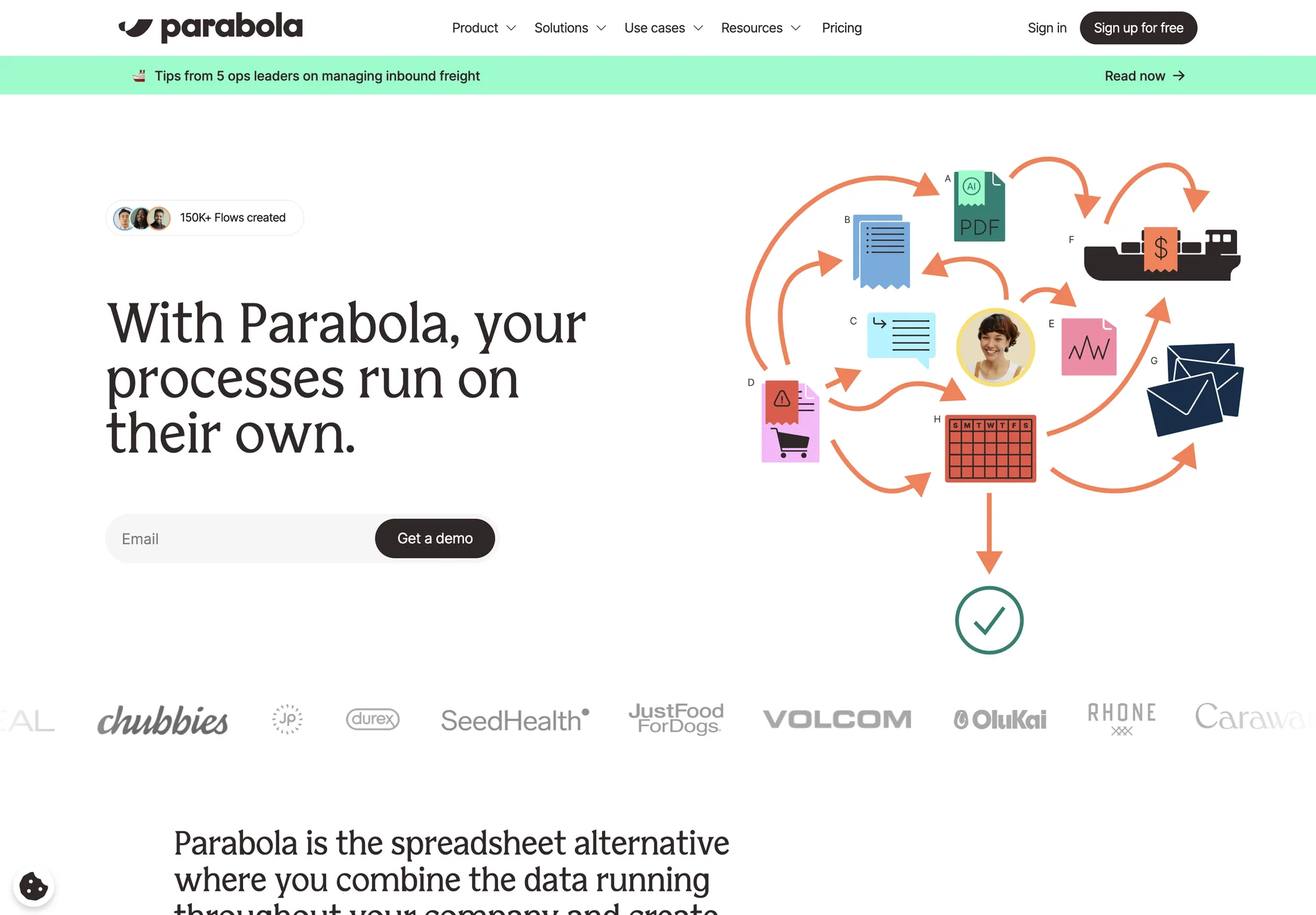Parabola: Simplifying Complex Data Processes
In today's fast-paced business environment, managing data efficiently is crucial. Parabola emerges as a powerful solution, offering an AI-driven platform that automates data processes, thereby saving time and enhancing productivity. This article delves into the features, use cases, and benefits of using Parabola.
Key Features
Parabola stands out with its comprehensive suite of features designed to streamline data management:
- Data Import from Multiple Sources: Seamlessly import data from Excel, APIs, emails, and other tools. The platform even supports AI-assisted extraction of data from PDFs.
- Data Transformation: Manipulate and transform data to meet specific needs, with detailed documentation of each step for clarity and reproducibility.
- Dynamic Visualizations: Create and share data visualizations such as charts, dashboards, and tables, making complex data more accessible.
- Automated Actions: Trigger actions based on data changes, sending updates to tools like Slack, emails, or other APIs.
Use Cases
Parabola's versatility makes it suitable for various industries:
- Retail & Ecommerce: Automate inventory updates and order management, ensuring real-time data accuracy.
- Freight & Logistics: Perfect data audits by transforming shipment line items, enhancing logistics management.
- SaaS: Consolidate scattered customer and revenue data to power strategic decisions.
Benefits
- Time Savings: Automating repetitive tasks frees up valuable time for more strategic activities.
- Improved Accuracy: Minimize human error through automated data processes.
- Enhanced Productivity: Streamlined workflows lead to increased efficiency and output.
Conclusion
Parabola is more than just a spreadsheet alternative; it's a comprehensive tool that leverages AI to automate and optimize data processes. Whether you're in retail, logistics, or SaaS, Parabola can transform the way you manage data, leading to significant time and cost savings.

